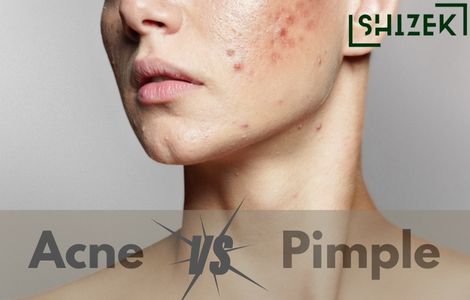Difference Between Permanent Teeth and Temporary Teeth

The key difference between permanent teeth and temporary teeth-Permanent teeth are stronger and last a lifetime, while temporary teeth are weaker and fall out in childhood.
In this article, we will explore the difference between permanent teeth and temporary teeth on the basis of different sets of parameters.
Table of Contents
- What is the Difference Between Permanent Teeth and Temporary Teeth?
- What is Permanent Teeth?
- What is Temporary Teeth
- Key Difference Between Permanent Teeth and Temporary Teeth
What is the Difference Between Permanent Teeth and Temporary Teeth?
| Parameter | Temporary Teeth | Permanent Teeth |
| Appearance | Smaller and whiter | Larger and slightly yellowish |
| Number | 20 teeth | 32 teeth |
| Lifespan | Fall out to make way for permanent teeth | Designed to last a lifetime |
| Root Structure | Shorter roots that dissolve | Longer, more robust roots |
| Function | Aid in speech development and early chewing | Handle strenuous chewing and speech needs |
| Enamel Thickness | Thinner enamel | Thicker enamel, more resistant to decay |
| Growth Timeline | Emerge by age 3, fall out around age 6 | Emerge around age 6, continue into early twenties |
Must Check
What are Permanent Teeth?
Permanent teeth, also known as adult teeth, are the second set of teeth that replace temporary teeth. These teeth are larger, stronger, and more durable. They are designed to last a lifetime if properly cared for. The complete set includes:
- Incisors: For cutting food.
- Canines: For tearing food.
- Premolars: For crushing and grinding food.
- Molars: For grinding food.
Adults typically have 32 permanent teeth, which include four wisdom teeth that may appear later in life.
Must Check
What are Temporary Teeth?
Temporary teeth, also known as primary or baby teeth, are the first set of teeth that develop in children. These teeth start to appear around six months of age and are fully in place by age three. The main roles of temporary teeth are:
- Helping with speech development.
- Assisting in chewing and eating.
- Holding space in the jaws for permanent teeth.
Children have 20 temporary teeth, which gradually fall out to make way for permanent teeth.
Must Check
Key Difference Between Permanent Teeth and Temporary Teeth
- Timeline: Temporary teeth emerge by age three and start to fall out around age six. Permanent teeth appear around age six and continue to emerge into early adulthood.
- Function: Temporary teeth assist in early development, while permanent teeth handle lifelong chewing and speaking tasks.
- Size and Color: Temporary teeth are smaller and whiter, whereas permanent teeth are larger and have a slightly yellowish tint.
- Number: Children have 20 temporary teeth; adults have 32 permanent teeth.
- Root Structure: Temporary teeth have shorter roots that dissolve, while permanent teeth have longer, stronger roots.
- Enamel: Permanent teeth have thicker enamel, making them more resistant to decay.
- Lifespan: Temporary teeth are meant to fall out, while permanent teeth are designed to last a lifetime.
Explore Our Other Blogs
























































































































